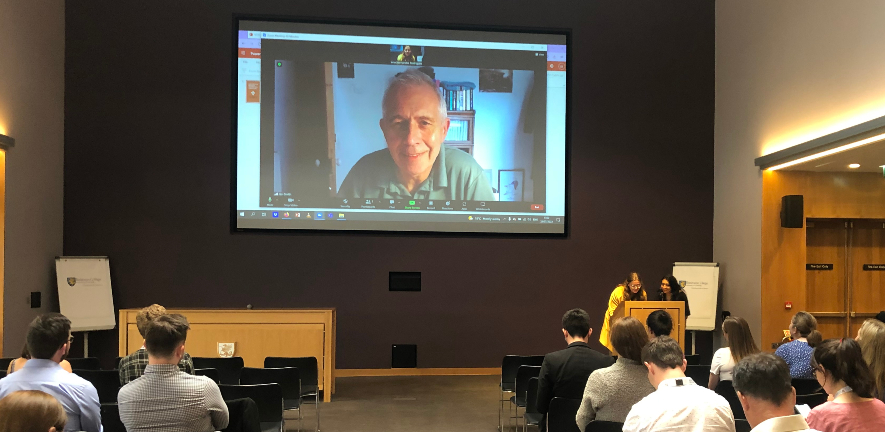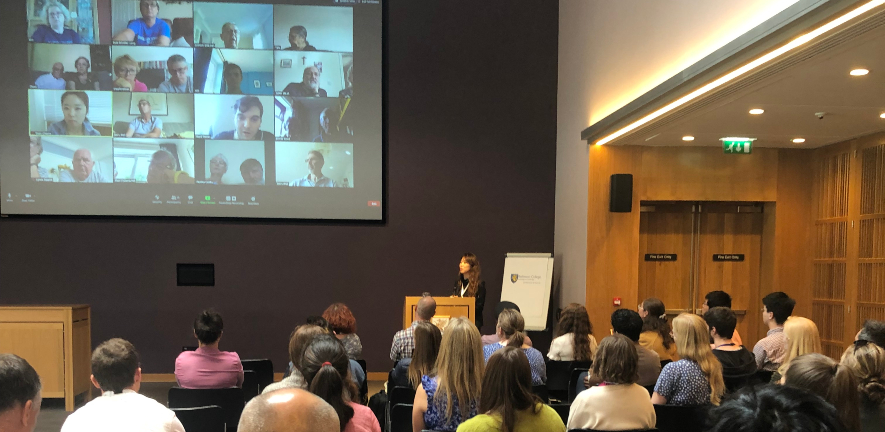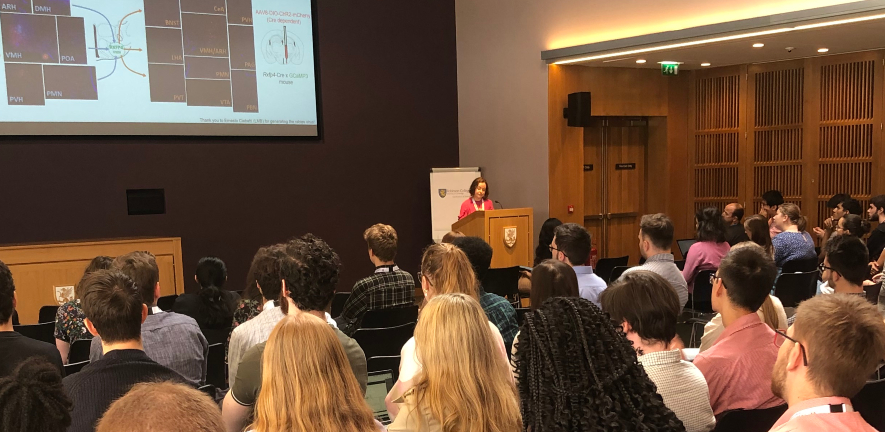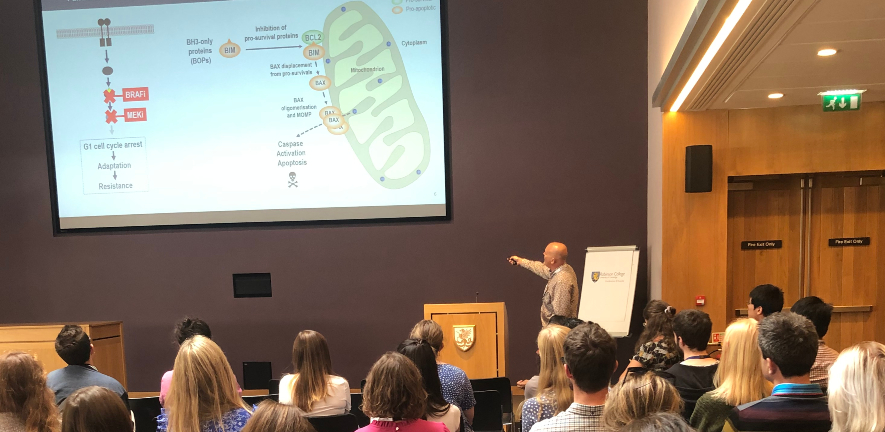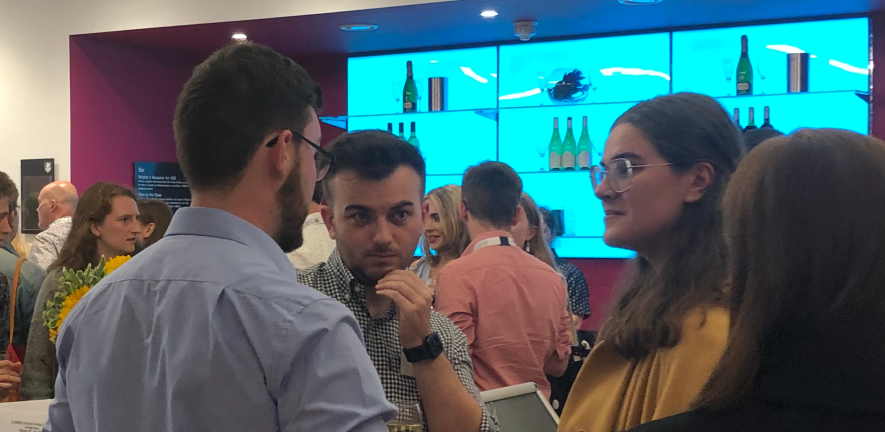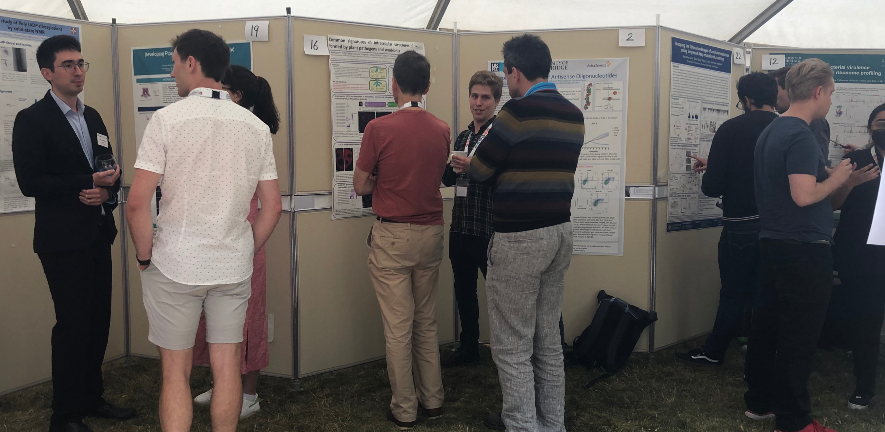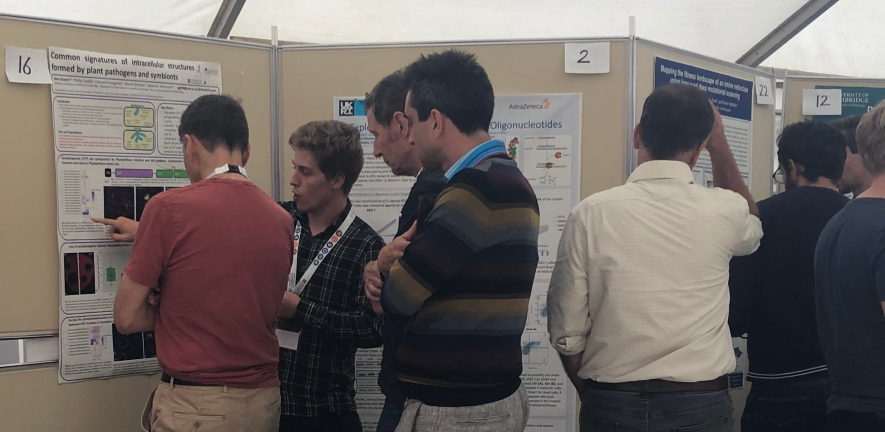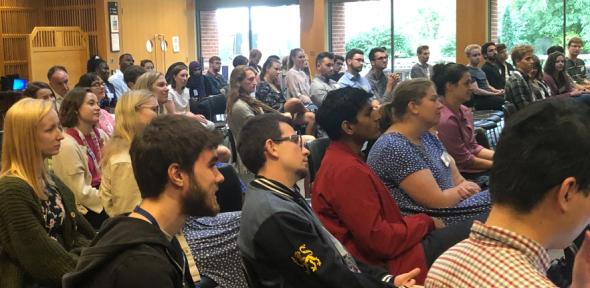
Submitted by Yolibeth López ... on Tue, 26/07/2022 - 12:58
On Monday 25 July the Cambridge Biosciences DTP hosted another successful Annual DTP Student Symposium at Robinson College!
The event featured student talks across the DTP cohorts and poster sessions, providing all DTP students with an opportunity to share their science and exchange research ideas. Our guest speakers were Dr Simon Cook (Director of the Babraham Institute), Prof Jim Smith (Director of Science at the Wellcome Trust and Senior Group Leader at the Francis Crick Institute) and Dr Luis Miguel Martins (MRC Investigator). Students also had the opportunity to meet with industry representatives and discuss future career opportunities outside of academia.
The Symposium is a student-led event and this year the Organising Committee were Ana Hernandez, Yizhou Yu, Oski Singh and Judith Benoit.
Student Prizes
Congratulations to Orla Woodward (BBSRC DTP iCase, 2018 cohort) for winning the prize for best talk: "RXFP4 in the brain - a potential new target for obesity treatment" and to Alexander Guyon (SBS DTP, 2020 cohort) for winning the prize for best poster: "Common signatures of intracellular structures formed by plant pathogens and symbionts".
We would like to thank Page Medical, Charco Neurotech, Charles River and Start Codon for sponsoring these prizes.








